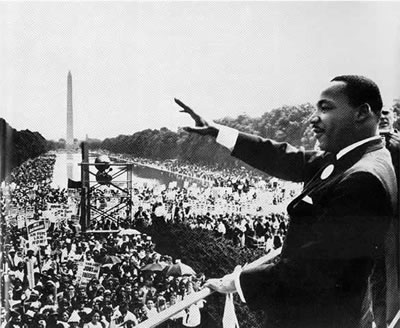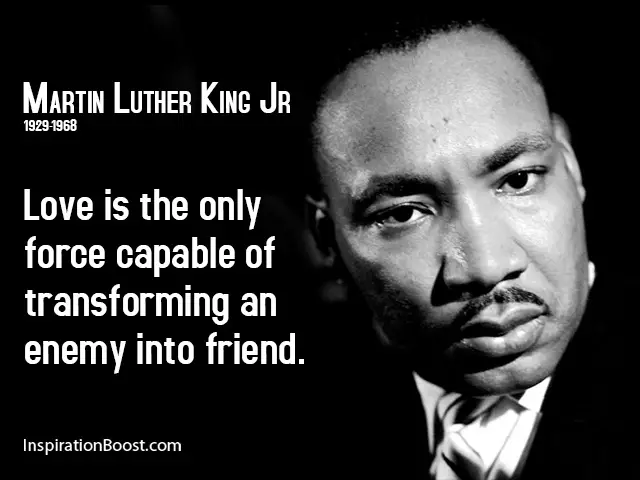
With all the strife happening in Baltimore, as well as, Ferguson, Sanford, New York City and cities yet to come, I thought it would be a good idea to republish a commentary I wrote back on August 26, 2013, where I discussed the most peaceful protest concerning race, The March on Washington. Martin Luther King gave the final speech that afternoon, which was attended by upwards of 300,000 people, both black and white.
Dr King’s whole philosophy was to attempt change peacefully, even with all the other protests that took place in the 1950s and 1960s, right up to April 4, 1968, in Memphis. The result of this particular speech was the Civil Rights Act of 1964 and its amendments, and the Voting Rights Act of 1965.
I for one was a true admirer of Dr King and during the remainder of the ‘60s and throughout my life, I have fought for the rights of all people, genders, orientations and all things which make us different.
We need to remember, as well as our leaders, that stirring the racial divide pot will not win the war. It may win kudos to those who need to find a reason to justify their anger, but in the end, as shown in Ferguson and Sanford and New York, the “victim” actually was the instigator.
As one of my friends said to me on Wednesday, “MLK wasn’t perfect but he was the best leader to lead “the cause”. He achieved so much through non-violence and he kept a focus on the objective which was true justice and equality by peaceful means. There is no one of his caliber today to provide that calm, measured leadership.”
I agree, as will you, when you listen to his speech at the end of the original commentary. Please read my commentary, Content of Character. Your comments are welcome.

Content of Character
August 26, 2013
Fifty years ago this Wednesday, August 28, 1963, less than three months before America and the world changed, the Reverend Martin Luther King, Jr gave one of the most important and prolific speeches in American History at the end of the peaceful March on Washington. This March was the culmination of a very long and hot summer, where violence seemed to rule the attitudes of the civil rights movement.
I was in a hospital in New York City in May of that year, just before my 12th birthday and I remember watching TV with the other boys in the ward, all of whom were black, and the news showed the terrible events taking place in Birmingham, and other cities in the south, where police turned water hoses and dogs on unarmed women, men and children walking in the street. For a white kid living in the north, I felt that this was the most horrid thing I ever saw. I had hoped the others in the room did not see this, or at least, did not understand.
This was the summer that I truly understood the meaning of what African Americans had been asking for, the rights I assumed all Americans were entitled to and enjoyed, but did not. The news was filled with stories like this all summer, and as the date of the March drew closer, many law enforcement and administration officials implored President Kennedy to request the leaders to call off the March.
Instead, he took the position that the leaders assured him that the March would be peaceful. However, common sense also prevailed; bars were closed, extra police and federal law enforcement were activated, the ballgame scheduled for that night was postponed. For this, President Kennedy and the civil rights leaders were rewarded with the most peaceful March of this sort, this massive, that summer and in history.
More violence occurred over the next few years, but Americans now understood Dr King's message of non-violence. Soon after the world changed, legislation to end discrimination in this country became law with the passage of the Civil Rights Act and the Voting Rights Act, two landmark laws to help along Dr King's dream.
I have provided the link for you to watch and hear Dr King's speech in its entirety.
I have provided the link for you to watch and hear Dr King's speech in its entirety.
I, too, have that dream.



















